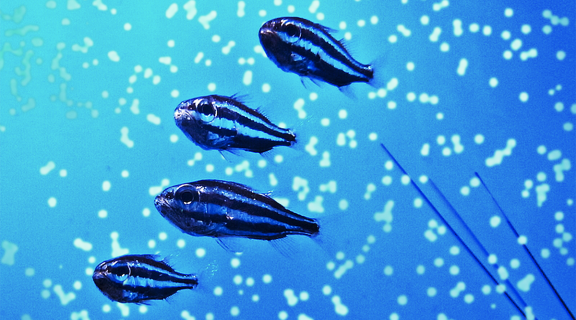
Rosenberg Institute Seminar Series - Alison Gould
Overview
Shedding light on symbiosis: lessons from a bioluminescent coral reef fish
Alison Gould, Research Scientist, California Academy of Sciences
Virtually all organisms depend on symbiotic interactions with bacteria for their success. Most bacterial symbionts are acquired horizontally from the environment, including those in highly dynamic marine environments.Despite the diverse pool of bacteria in the environment,hosts typically associate with only a select subset of symbiont species.The mechanisms that promote host-symbiont specificity are critically important to promote the stability of these critical associations through time yet they remain largely uncharacterized. The highly specific, bioluminescent symbiosis between coral reef fish in the Siphamia genus and a luminous member of the Vibrio family, Photobacterium mandapamensis, is providing new insights into the mechanisms that regulate the formation and maintenance of microbial symbiosis from an evolutionary scale down to the molecular level. Ultimately, this experimentally tractable, binary association can help disentangle the ecological and physiological complexities underlying the establishment, persistence, and evolution of host-microbe specificity.
Dr. Alison Gould is a Research Scientist at the California Academy of Sciences studying the critical, yet complex, relationships between animals and beneficial bacteria. Her research primarily focuses on bioluminescent symbiosis between fish in the Siphamia genus and luminous bacteria. She earned undergraduate degrees in Mathematics and Biology from the University of Virginia, a Master's degree in Marine Biology from SF State's Estuary and Ocean Science Center, and a Ph.D. in Ecology and Evolutionary Biology from the University of Michigan. She also spent one year as a postdoctoral researcher at UC Berkeley before starting her lab at Cal Academy.